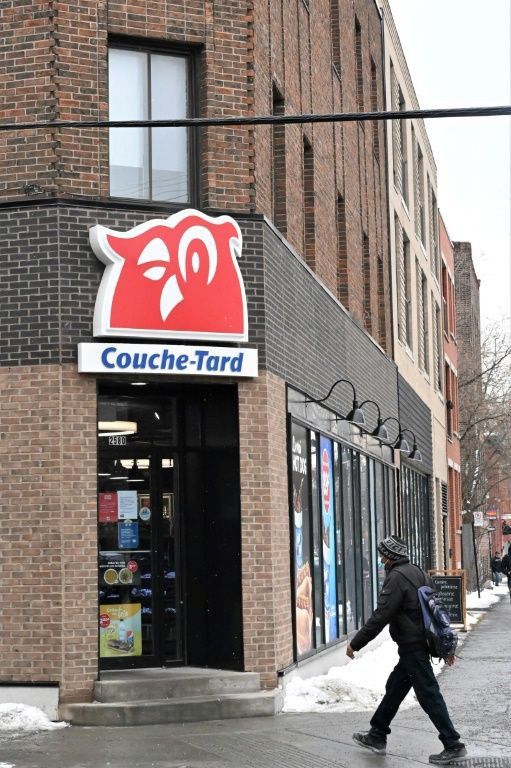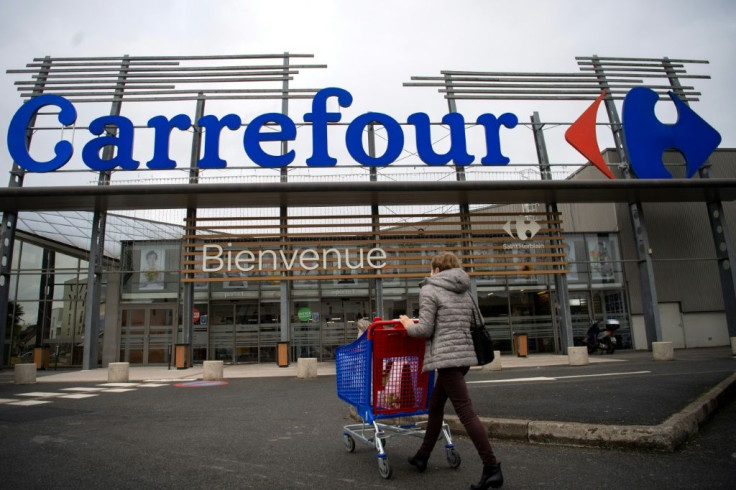Canadian Carrefour Bid In Trouble As French Government Objects
A potential bid for global retailer Carrefour, France's biggest private employer, by a Canadian convenience store group seemed to be going nowhere on Thursday after the French government poured cold water on the idea.
Canada's Couche-Tard said Wednesday that it had made a nonbinding offer for Carrefour that values the French group at more than 16 billion euros ($19.5 billion).
Carrefour's shares shot over 13 percent higher on Wednesday in reaction to the news, but retrenched Thursday after Finance Minister Bruno Le Maire said he was "at first glance, not in favour of this operation", calling Carrefour "an essential link in food security for the French, of food sovereignty."
The stock traded 1.1 percent lower at 17.36 euros Thursday afternoon, but well off the day's worst levels in an indication that investors were perhaps not quite ready to bury the merger idea.
Earlier Thursday, Labour Minister Elisabeth Borne said Carrefour's current ownership "should not be put into question" and that the company's strategy "should be protected."

The government's robust reaction caused "surprise" at Carrefour itself, according to sources there who said that the flurry of hostile comments were "premature" given that merger discussions had barely begun.
"We haven't decided yet whether the interest shown is attractive for us," one company official said on condition of anonymity.
Carrefour has more than 12,300 stores of various formats in more than 30 countries, and in 2019 generated a net profit of 1.3 billion euros on revenue of 80.7 billion euros.
It employs 320,000 people worldwide, and is, according to the government, the biggest private-sector employer in France.
Couche-Tard has a worldwide network of more than 14,200 stores, and earned a net profit of $2.4 billion on sales of $54 billion in its non-calendar 2019 fiscal year.
In the US and several European countries, as well as in Latin America and southeast Asia, it operates under the Circle K and other brands.
Couche-Tard is "extremely well managed, very profitable and has always been able to make acquisitions without raising its debt level", Jacques Nantel, professor emeritus at HEC business school in Montreal, told AFP.

He said it was "not really surprising" that the Quebec-based company was on the lookout for a world leader in supermarkets after it failed last year to take over 7-Eleven stores.
"There are fewer and fewer attractive acquisition targets" in the retail sector, he said, at least ones that are "profitable and that can be merged."
An internal Carrefour document, seen by AFP, said the retailer had agreed "to examine the project" with a view to deciding whether a tie-up "would permit an acceleration of the group's development", whether it made sense for all interested parties, "especially the group's workforce", and whether it would unlock value for shareholders.
The Force Ouvriere union branch at Carrefour said "the offer, as it stands, seems to be a financial operation benefiting only shareholders."
Unions "will remain vigilant," warned the representative for the CFDT union, Thierry Babot.
"The government has the last word -- game over," said Fabienne Caron, an analyst at Kepler Cheuvreux, Bloomberg reported.
But other analysts said that Le Maire's "at first glance" rider could indicate a potential softening of his stance if, for example, there were guarantees to safeguard jobs, and a promise to keep Carrefour's headquarters in France.
They said there was little overlap between both groups in terms of their store concepts and geographical presence, which would make preserving employment easier.
But this limited scope for synergies, in turn, raised the question of how a merger would create value for shareholders, they said.
Either way, Le Maire said that the law allowed the government to block takeovers of French target companies that are deemed strategic, a provision that now also covered food security.
"If one day you go to a Carrefour store, or an Auchan (another French retailer) and there's no pasta, and no rice, how are you going to manage?" Le Maire said.
The last time the authorities used their veto power was in December, when they told US company Teledyne it could not have Photonis, a supplier of night vision instruments to the French army.
© Copyright AFP 2024. All rights reserved.





















